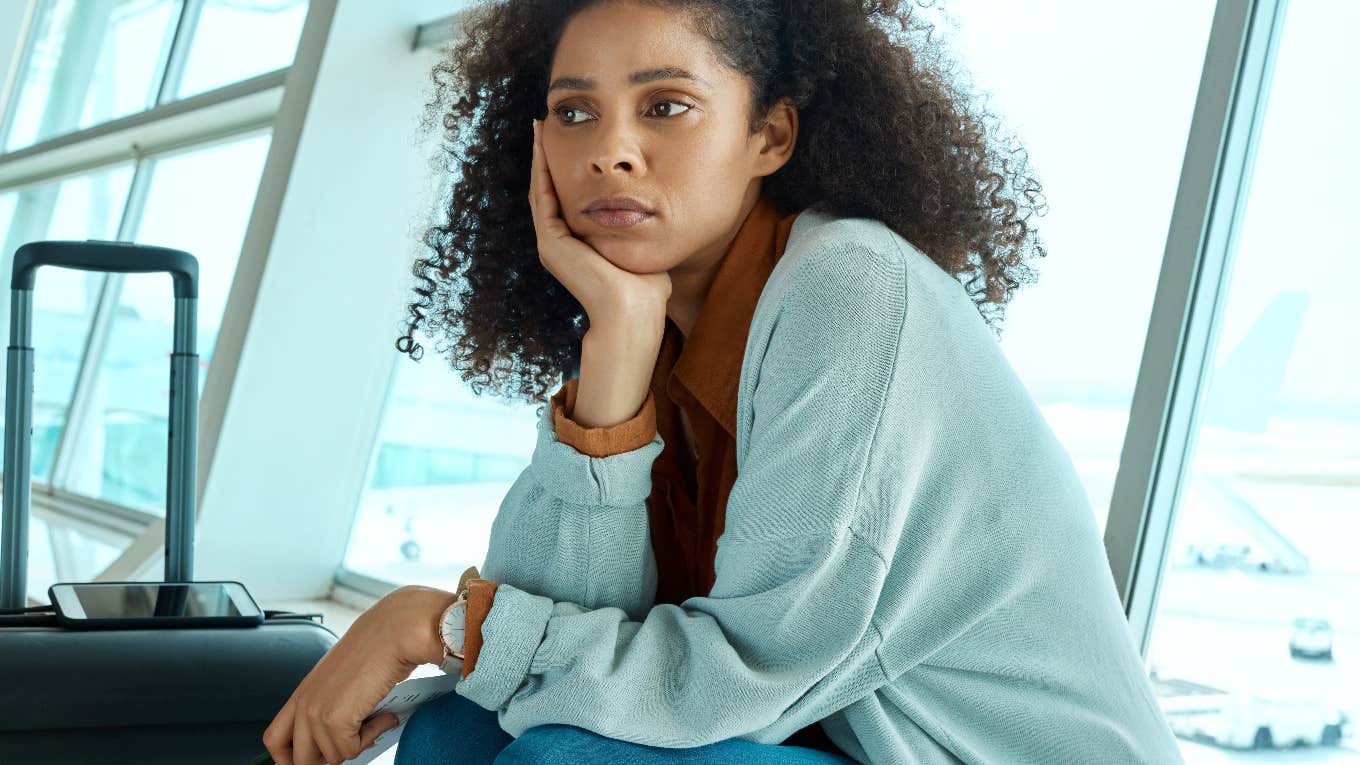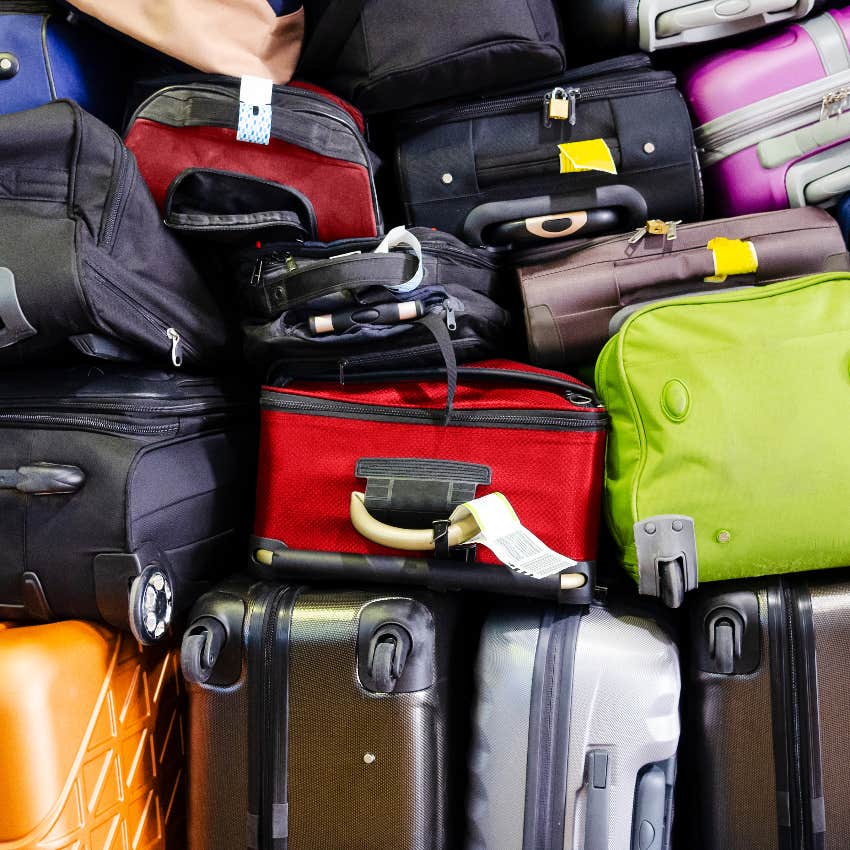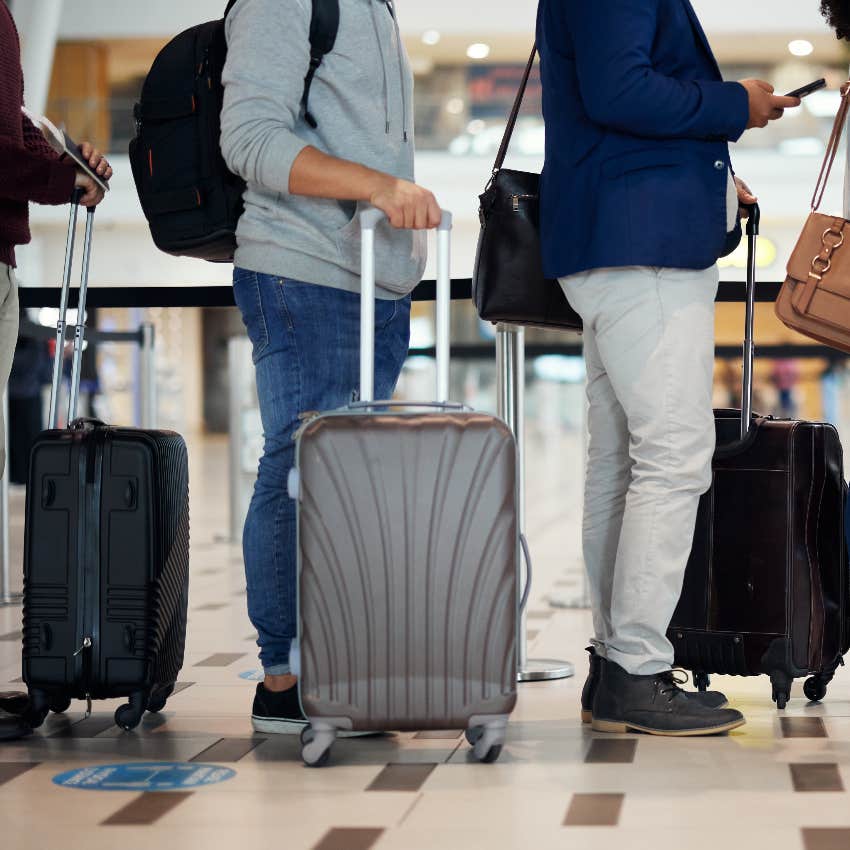Former Airline CEO Reveals The Biggest Mistake Travelers Make When Taking A Flight
Sometimes this so-called mistake is unavoidable.
 PeopleImages.com - Yuri A | Shutterstock
PeopleImages.com - Yuri A | Shutterstock Air travel is inherently stressful, no matter how you slice and dice it. However, one former airline CEO shared a piece of advice that he claimed would make flying easier — and it all has to do with luggage management.
The former CEO of American Airlines said that the biggest mistake travelers make is checking a bag.
During an episode of the “Airlines Confidential” podcast, former American Airlines CEO Doug Parker was asked to share the best travel tip he had for flyers.
While he claimed that there are no “silver bullets” that he is aware of that others aren’t, Parker said that he always offers the same piece of advice to his family when they fly: never check a bag.
A checked bag is a piece of luggage that you hand over to the airline during check-in to be stowed in the aircraft’s cargo hold during your flight. After your flight lands, you retrieve your checked bag at your destination’s baggage claim area.
Passengers usually use checked bags when they are traveling for an extended period of time and need more space than what a carry-on bag can hold. However, checked bags have a tendency to get misplaced.
“It’s not that the airlines don’t know how to get them there, but it’s incredibly complex, it makes your experience much more difficult,” Parker said.
From weather to technical delays to tight layovers, there are plenty of opportunities where your checked bag can get lost or placed on the wrong aircraft.
It makes sense the American Airline's CEO would hold this stance as the airline mishandles more luggage than any other, losing or damaging more than eight bags per 1,000 checked bags.
 Maurizio Milanesio | Shutterstock
Maurizio Milanesio | Shutterstock
Yet, there are several benefits to bringing only a carry-on bag rather than checked luggage. For one, you spare yourself extra charges.
Most airlines charge an additional fee for checked bags. American Airlines, for example, charges $40 for the first checked bag for domestic travel and $35 if passengers pay online in advance. The price for a second checked bag rises to $45. Of course, this price is only for bags that weigh under 50 lbs. and have a dimension less than 62 in. by 158 cm. Bigger and heavier pieces of luggage cost $100 or $200.
By not checking a bag, you will also have a faster travel experience since you can skip the check-in counter and notoriously time-consuming baggage claim process.
Yet, sometimes it is simply not possible to cram everything you need into a carry-on bag.
Carry-on bags, of course, have size limits and it is not always feasible to pack everything you need while traveling into such a small piece of luggage.
 PeopleImages.com - Yuri A | Shutterstock
PeopleImages.com - Yuri A | Shutterstock
Even if you do bring only carry-on, if you are one of the last to board the plane, you may have to gate-check it due to space limitations. If that happens, Parker advised travelers to be kind toward gate agents and other airport personnel no matter how frustrating the situation.
At the end of the day, even if you must check a bag, it doesn’t necessarily mean that your travel experience will be more difficult. As long as you plan accordingly and familiarize yourself with bag-checking procedures, it doesn’t have to be exceedingly stressful.
Just remember to pack any medications, valuable documents, and fragile items in your carry-on in case something does go awry.
Megan Quinn is a writer at YourTango who covers entertainment and news, self, love, and relationships.

